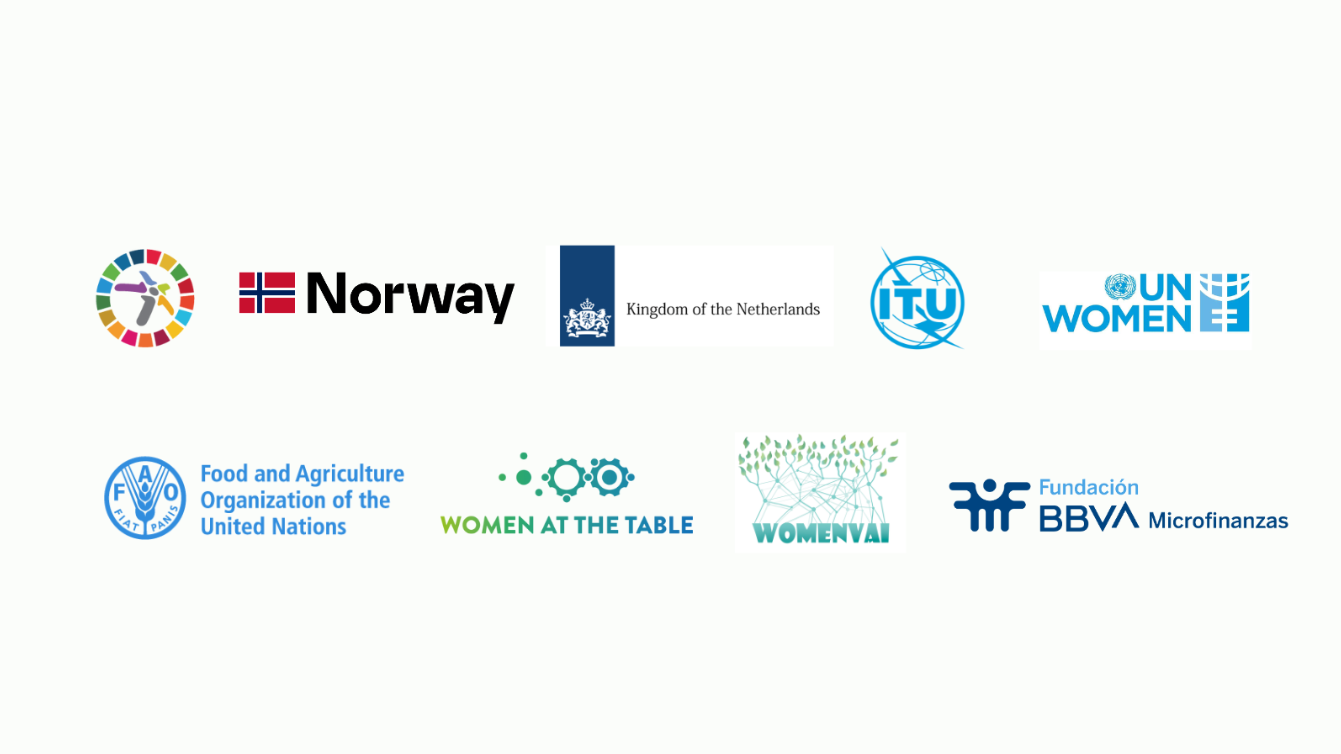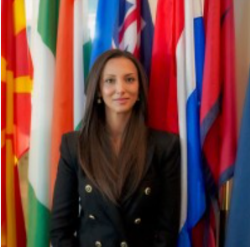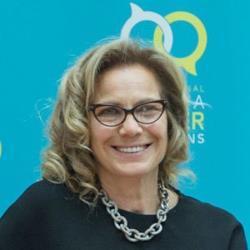CSW69/Beijing+30 Side-Event: Accelerating Gender Equality in the Digital Age: Leveraging WSIS+20 Milestones and Beyond
ITU, WSIS, Government of the Netherlands, Government of Norway, UN WOMEN, FAO, BBVA Microfinance Foundation, Women At the Table, WomenVAI
Session 119

ON-SITE event, taking place from 13:15 to 14:30 New York Time, at UN Headquarters, Conference Room A
The sixty-ninth session of the Commission on the Status of Women will take place from 10 to 21 March 2025. The main focus of the sixty-ninth session will be on the review and appraisal of the implementation of the Beijing Declaration and Platform for Action and the outcomes of the 23rd special session of the General Assembly. The review will include an assessment of current challenges that affect the implementation of the Platform for Action and the achievement of gender equality and the empowerment of women and its contribution towards the full realization of the 2030 Agenda for Sustainable Development.
Since its inception in 2003, the World Summit on the Information Society (WSIS) process has set out a vision for harnessing information and communication technologies (ICTs) to promote gender equality. WSIS affirms the importance of promoting and maintaining gender equality and women empowerment, emphasizing on the need to fully enable the participation of women based on equality in all spheres of society and in all decision-making processes. Gender Mainstreaming is a cross-cutting issue across all 11 WSIS Action Lines, which offer a robust framework to promote meaningful, affordable access to digital literacy, and empowerment for women, among other objectives.
The upcoming WSIS+20 review by the UNGA in 2025, will serve as a platform for multistakeholder exchanges and a catalyst for action, taking stock of achievements, key trends, and challenges since the 2003 Geneva Plan of Action.
The intersection of Beijing+30 and the WSIS+20 reviews provide an opportunity to evaluate and push forward the agenda of integrating gender equality into all aspects of the growing digital world, ensuring that policies and actions taken in the sphere of digital governance leave no one behind.
Objectives
The Side Event will highlight the urgent need to integrate gender equality within global digital policies and initiatives, with a focus on the 20-year review of the WSIS Process. The session aims to identify essential actions for fostering an inclusive digital ecosystem and to discuss the progress and challenges in realizing digital gender equality. Additionally, the session will emphasize on the significance of incorporating digital issues into the Beijing+30 review.
The Side Event will showcase a multistakeholder panel of speakers, each ready to present concrete actions and highlight the necessity for collaborative efforts to achieve tangible progress. The panel will explore strategies to harness the transformative potential of digital technologies for the empowerment of women and girls across the globe. They will outline a path forward pushing forward inclusive digital innovation and ensuring that women and girls are able to participate fully and equitably in the digital age.
.png?maxwidth=250)
Gitanjali Sah is the Strategy and Policy Coordinator at the International Telecommunication Union (ITU), where she plays a pivotal role in shaping global digital governance, including initiatives like the World Summit on the Information Society (WSIS) and the 2030 Agenda for Sustainable Development. With over 20 years of expertise in digital policy across national, regional, and international platforms, she has made significant contributions to several UN agencies. An expert in coordinating multi-stakeholder processes, Gitanjali is adept at designing and facilitating inclusive processes that engage diverse stakeholders. Passionate about digital gender equity, she champions the integration of gender into digital policies, advocates for Digital Gender Champions, and works to close the gender gap in AI. She holds an M.Phil. in Development Studies from the University of Cambridge and a Master’s in Political Science from Jawaharlal Nehru University

Ms Rina Kristmoen is Minister Counsellor and Head of the Development Team at the Permanent Mission of Norway to UN. She has previously served at MFA in the Section for UN Policy and in the Africa section and has been posted to the Norwegian Embassy in Addis Ababa, covering regional affairs. She was the Deputy Head of Mission to the Norwegian Embassy in Harare and has also been posted to the Embassy in Nairobi, covering Somalia and several peace processes.
She is an alumnus of the University of Bergen, and has a master’s degree in law.

Papa Seck is the Chief of Research and Data Section. He leads the organization’s research and statistical work, including UN Women's Women Count global gender data programme and currently serves as Co-Chair of the Inter-Secretariat Working Group on Household Surveys.

Kim covers the Cyber and Digital portfolio at the Permanent Mission of the Kingdom of the Netherlands to the UN. She has actively engaged in several UN cyber and digital processes, such as the Open-Ended Working Group on Security of and in the Use of Information and Communications Technologies (OEWG), the Group of Governmental Experts on Developments in the Field of Information and Telecommunications in the Context of International Security (GGE), the Ad Hoc Committee on Cybercrime (AHC), Global Digital Compact. Most recently she tabled the UN resolution on AI in the Military Domain, and was part of the EU negotiating team on the other UNGA AI resolutions. Prior to joining the Ministry of Foreign Affairs, Kim worked in the legal sector. In those years, she worked in Tokyo and New York.

Caitlin Kraft-Buchman is CEO/Founder Women At The Table – a gender equality & systems change Think Tank based in Geneva; Co-Founder/Leader of the <A+> Alliance for Inclusive Algorithms – a global coalition prototyping a new future of AI and the Leader of the <AI & Equality> Human Rights Toolbox platform that supports a global community working for human rights-based approaches to AI development - working with cities and organizations on technology methodology that work for the triple bottom line and benefit of all.
Caitlin is also co-founder of the International Gender Champions (IGC) - with hubs in Geneva, New York, Vienna, Nairobi, The Hague & Paris - bringing together female & male heads of organizations, including the UN Secretary-General, to break down gender barriers. She serves on the IGC Global Board, and co-leads the IGC Impact Group on Digital and New Emerging Technologies. Caitlin is a one of the Network of Experts for UN Secretary General’s AI Advisory Body; a member of UNESCO’s WomenForEthicalAI working group; member of the Gender & AI Advisory Group for the AI Action Summit held in Paris in February, and Co-Chair of the UN Commission on Science & Technology for Development (CSTD)'s Gender Advisory Board.

Ms Angélica Jácome is the Director of the Food and Agriculture Organization of the United Nations (FAO) Liaison Office to the United Nations in New York.
Prior to assuming her current role, she held the position of FAO Director of the Office of Small Island Developing States (SIDS), Least Developed Countries (LDCs) and Landlocked Developing Countries (LLDCs) from 2020-2025, during which time she was the Executive Chief for both the FAO Women’s and Youth Committees.
Before joining FAO, she held the position of Permanent Representative of Panama to the United Nations Rome-based Agencies (RBAs) from 2015 to 2019. She also served in other foreign missions of Panama and worked for various international organizations, including the United Nations Children’s Fund (UNICEF) and the World Food Programme (WFP).
Ms Angélica Jácome started her career in 1999 at the Permanent Mission of Panama to the United Nations in New York, where she returned in 2007 as part of the team representing Panama to the United Nations Security Council on issues such as Sudan; Children and Armed Conflict; Women, Peace and Security; and Counterterrorism.

Yvette Ramos, MSc. Eng.-MBA Human Resource & Change Management, currently 3rd yr-PhD (Climate Change & Sustainable Development policies, Univ. Lisbon, Portugal). With 30 years professional experience, as an international consultant for United Nations agencies (ITU, WMO, etc.) in social science fields (strategic planning, institutional frameworks, national policies, project management) mainly in developing regions of the world, Yvette has developed extensive experience in both private and public sectors. She is the first female president of the Swiss Engineering Geneva Chapter association after a century existence. Co-founder and president of WOMENVAI, NGO accredited with special ECOSOC observing status by the UN, managing director of a Intellectual Property law firm in Geneva, she has a passion for innovation, people and inter-disciplinary research.

Laura leads the unit of equity, inclusion and environmental sustainability at BBVA Microfinance Foundation. She has more than 20 years of experience in development cooperation in philanthropies and multilateral organizations such as the FAO, IDB or the Spanish Development Agency.
She holds a BA in Economics and an M.A. in International Relations at School of Advanced International Studies, Johns Hopkins University, where she specialized in Economic Development and Latin American Studies, in addition to other courses on innovation, leadership and sustainability at the MIT or ESADE Business School.
Since 2016 she has led the Women’s Economic Empowerment strategy at the Foundation for the 5 MFIs of the Group and +1.7 million women. Laura has participated in major international fora such as the United Nations CSW, UN ECLAC’s Regional Women Conference, CGAP’s Annual Meeting, or the Gender Netfwd of the OECD. She also participates in the Advisory board of the CGAP Finequity LAC.
-
 C1. The role of governments and all stakeholders in the promotion of ICTs for development
C1. The role of governments and all stakeholders in the promotion of ICTs for development
-
 C2. Information and communication infrastructure
C2. Information and communication infrastructure
-
 C3. Access to information and knowledge
C3. Access to information and knowledge
-
 C4. Capacity building
C4. Capacity building
-
 C5. Building confidence and security in use of ICTs
C5. Building confidence and security in use of ICTs
-
 C6. Enabling environment
C6. Enabling environment
-
 C7. ICT applications: benefits in all aspects of life — E-government
C7. ICT applications: benefits in all aspects of life — E-government
-
 C7. ICT applications: benefits in all aspects of life — E-business
C7. ICT applications: benefits in all aspects of life — E-business
-
 C7. ICT applications: benefits in all aspects of life — E-learning
C7. ICT applications: benefits in all aspects of life — E-learning
-
 C7. ICT applications: benefits in all aspects of life — E-health
C7. ICT applications: benefits in all aspects of life — E-health
-
 C7. ICT applications: benefits in all aspects of life — E-employment
C7. ICT applications: benefits in all aspects of life — E-employment
-
 C7. ICT applications: benefits in all aspects of life — E-environment
C7. ICT applications: benefits in all aspects of life — E-environment
-
 C7. ICT applications: benefits in all aspects of life — E-agriculture
C7. ICT applications: benefits in all aspects of life — E-agriculture
-
 C7. ICT applications: benefits in all aspects of life — E-science
C7. ICT applications: benefits in all aspects of life — E-science
-
 C8. Cultural diversity and identity, linguistic diversity and local content
C8. Cultural diversity and identity, linguistic diversity and local content
-
 C9. Media
C9. Media
-
 C10. Ethical dimensions of the Information Society
C10. Ethical dimensions of the Information Society
-
 C11. International and regional cooperation
C11. International and regional cooperation
-
 Goal 5: Achieve gender equality and empower all women and girls
Goal 5: Achieve gender equality and empower all women and girls
.jpeg?maxwidth=2160)
.jpeg?maxwidth=2160)






